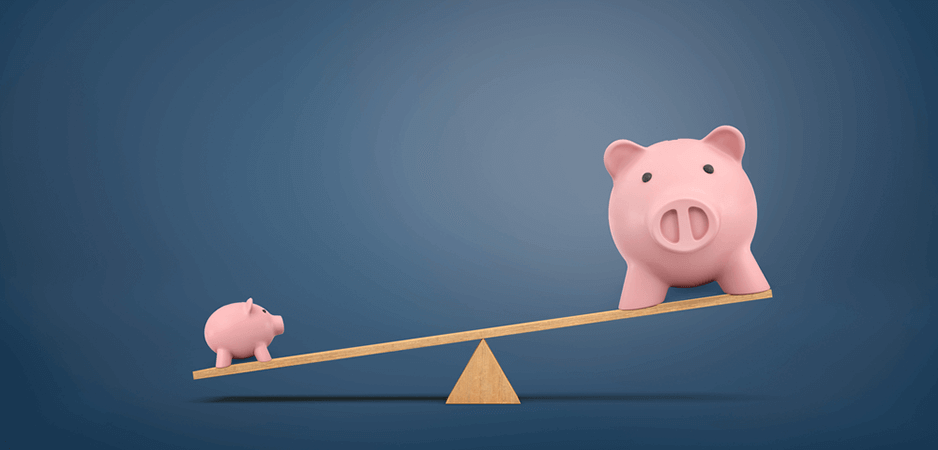Can economics become a mature and socially responsible science by acknowledging the existence of illth?
We are all prisoners of our language, forced to remain within the limits of what the overwhelming majority acknowledges and forced to ignore what our thought leaders conspire to discard from their shared vocabulary. Some useful, even essential concepts have existed for generations, with no one paying attention to them.
We should thank Umair Haque, one of the most penetrating and acerbic critics of our social and economic culture and intuitions, for highlighting the current importance of a word that has existed for a century and a half but which has been consciously excluded from our economic and political vocabulary, simply because it would require us to think differently about economics. Any “different way of thinking,” Haque seems to tell us, would be branded heresy according to the theology of our established economic religion.
Economists have accepted the notion of “externalities” to describe economic effects — positive and negative — that aren’t accounted for in official bookkeeping, but because there is no pragmatic need to calculate them, we can admit their existence without having to grapple with their actual cost or any wider social and cultural implications. Haque describes the phenomenon — invisible to most — of “negative wealth, accumulated bad, which lingers, and we will all shoulder the burdens of cleaning up, just like climate change.” He then reminds us that “John Ruskin, the poet and critic, coined a term for that, long ago: illth.”
Here is today’s 3D definition:
Illth:
Either the opposite of wealth or, more concretely, the disastrous result of wealth’s concentration
Contextual note
Imagine the scenario if Ruskin had written a book with the title, “The Illth of Nations,” providing a necessary complement to Adam Smith’s hugely influential The Wealth of Nations. Would his publisher have accepted the title? Ruskin was a culture critic, not an economist. As it was, the essay in which he proposed the notion of illth (more as a metaphor than as an economic concept) was violently criticized, forcing the publisher to pull it from the marketplace after just four months.
We may say to ourselves that if the word and concept illth remains unknown to the vast majority of people, it proves that the concept itself has no more utility than, say, bodkin, which would have disappeared from our cultural consciousness had Shakespeare not included it in the most famous soliloquy in the English language. But as Haque insists, illth describes what we can all see — the degradation of the planet, growing political confusion and a plethora of social and cultural ills, all related to the way economics plays out in today’s society. And yet the word and the powerful, meaningful notion it contains have been excluded from our field of consciousness.
Historical note
The social, economic and linguistic history of the 19th and 20th century tells us that, during those two centuries, wealth was in the process of replacing faith as the moral foundation of Western civilization. Historical logic — and the converging interests of the new capitalist and political class — required that the word illth disappear for posterity, lost in the pages of an obscure, contested essay by a cranky English culture critic.
 But important concepts can be revived and developed. In 2016, Andrew Hill in the Financial Times insisted, as Haque is doing today, that “illth should be restored to the lexicon of capitalism.” He even suggested that we try to analyze the “illth-wealth divide,” to implement a kind of moral accounting system that could (theoretically) guide the wealthy and senior managers in the corporate world. He also suggests that as economists and politicians constantly talk about wealth creation, they should also learn to talk about and analyze illth creation.
But important concepts can be revived and developed. In 2016, Andrew Hill in the Financial Times insisted, as Haque is doing today, that “illth should be restored to the lexicon of capitalism.” He even suggested that we try to analyze the “illth-wealth divide,” to implement a kind of moral accounting system that could (theoretically) guide the wealthy and senior managers in the corporate world. He also suggests that as economists and politicians constantly talk about wealth creation, they should also learn to talk about and analyze illth creation.
But Hill unconsciously highlights the damage done by excluding the notion illth from polite scientific vocabulary when the solution he recommends is simply learning to weigh illth against wealth in individual cases. He thus reveals that he too is a prisoner of traditional economic culture, which focuses on local decisions and isolated benefit vs. detriment comparisons.
Haque offers us a deeper, historically and culturally grounded analysis of the phenomenon of illth. He highlights the fact that we are taught to believe that because capitalism encourages and facilitates the production and distribution of goods — implying as a further benefit the creation of jobs — “capitalism can only ever do good.” He puts his finger on the injustice Hill fails to see: That somebody other than the producer of illth is expected to pay for its cost. Haque writes: “The missing half of economics is the idea that capitalism can produce—and often does produce—bads, which we must all shoulder the burdens of, while the very producers who should ‘own’ those bads, and pay their costs, walk away scot-free, and grow mega-rich.”
Haque thus encourages us to reimagine “an economics that isn’t so fatally, simplistically, arrogantly and obviously wrong” by building an awareness of illth and acting to prevent it.
*[In the age of Oscar Wilde and Mark Twain, another American wit, the journalist Ambrose Bierce, produced a series of satirical definitions of commonly used terms, throwing light on their hidden meanings in real discourse. Bierce eventually collected and published them as a book, The Devil’s Dictionary, in 1911. We have shamelessly appropriated his title in the interest of continuing his wholesome pedagogical effort to enlighten generations of readers of the news.]
The views expressed in this article are the author’s own and do not necessarily reflect Fair Observer’s editorial policy.
Support Fair Observer
We rely on your support for our independence, diversity and quality.
For more than 10 years, Fair Observer has been free, fair and independent. No billionaire owns us, no advertisers control us. We are a reader-supported nonprofit. Unlike many other publications, we keep our content free for readers regardless of where they live or whether they can afford to pay. We have no paywalls and no ads.
In the post-truth era of fake news, echo chambers and filter bubbles, we publish a plurality of perspectives from around the world. Anyone can publish with us, but everyone goes through a rigorous editorial process. So, you get fact-checked, well-reasoned content instead of noise.
We publish 2,500+ voices from 90+ countries. We also conduct education and training programs
on subjects ranging from digital media and journalism to writing and critical thinking. This
doesn’t come cheap. Servers, editors, trainers and web developers cost
money.
Please consider supporting us on a regular basis as a recurring donor or a
sustaining member.
Will you support FO’s journalism?
We rely on your support for our independence, diversity and quality.






